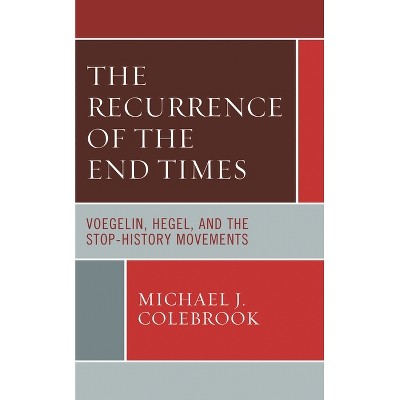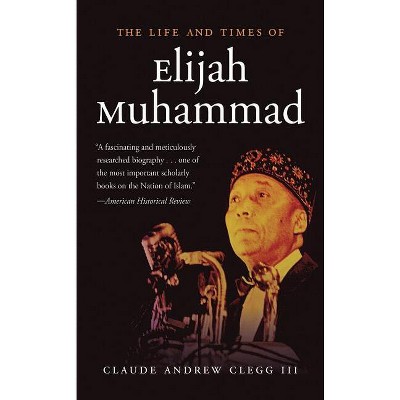Sponsored

Times of Heroism, Times of Terror - by Martin Thornton (Hardcover)
In Stock
Sponsored
About this item
Highlights
- Understanding foreign policy has become more essential than ever in today's integrated world.
- About the Author: Martin Thornton is a senior lecturer in the School of History at the University of Leeds, England.
- 190 Pages
- Political Science, History & Theory
Description
About the Book
Understanding foreign policy has become more essential than ever in today's integrated world. How the United States acts as a nation has far-reaching consequences, especially in times of war. To better understand America's stance on foreign policy today, it is helpful to analyze how U.S. presidents and leaders have acted in the past, particularly throughout the 20th century. Thornton argues that descriptions or the classification of presidents have been misleading since presidents are often reacting to unique foreign policy crises and at times may have, through good diplomacy, forestalled serious crises from developing. Basing his insights on numerous first-hand sources such as handwritten notes and memos taken during meetings of heads-of-state, he portrays the presidents as very human individuals struggling with difficult questions and the responsibilities only men of their position have to deal with.
Topics examined in the book include but are not limited to: Events leading up to the Cold War 1946-1952: Truman and Containment 1953-1960: Eisenhower and Military Challenge 1961-1963: JFK and Foreign Policy Leadership 1963-1968: Johnson and War Home and Abroad 1969-1974: Nixon, Kissinger, and the Search for Peace 1974-1976: Gerald R. Ford 1977-1980: Jimmy Carter 1981-1988: Ronald Reagan 1989-1991: George H. Bush and the End of the War. This text stands out due to its readability and its comprehensiveness. The average reader will have no problem getting a clear grasp of the topic at hand. The college professor of U.S. or international history, political science, international studies, or even ethicist who wishes to engage students in their reading assignments would do well to pick up this text.
Book Synopsis
Understanding foreign policy has become more essential than ever in today's integrated world. How the United States acts as a nation has far-reaching consequences, especially in times of war. To better understand America's stance on foreign policy today, it is helpful to analyze how U.S. presidents and leaders have acted in the past, particularly throughout the 20th century. Thornton argues that descriptions or the classification of presidents have been misleading since presidents are often reacting to unique foreign policy crises and at times may have, through good diplomacy, forestalled serious crises from developing. Basing his insights on numerous first-hand sources such as handwritten notes and memos taken during meetings of heads-of-state, he portrays the presidents as very human individuals struggling with difficult questions and the responsibilities only men of their position have to deal with.
Topics examined in the book include but are not limited to: Events leading up to the Cold War 1946-1952: Truman and Containment 1953-1960: Eisenhower and Military Challenge 1961-1963: JFK and Foreign Policy Leadership 1963-1968: Johnson and War Home and Abroad 1969-1974: Nixon, Kissinger, and the Search for Peace 1974-1976: Gerald R. Ford 1977-1980: Jimmy Carter 1981-1988: Ronald Reagan 1989-1991: George H. Bush and the End of the War. This text stands out due to its readability and its comprehensiveness. The average reader will have no problem getting a clear grasp of the topic at hand. The college professor of U.S. or international history, political science, international studies, or even ethicist who wishes to engage students in their reading assignments would do well to pick up this text.Review Quotes
"Thornton has written a brief overview of the role of US presidents during the Cold War. He devotes one chapter to each leader from FDR to George H. W. Bush, briefly discussing their own military experiences (or lack thereof) and focusing on their decision-making styles. Although the presidents differed in the ways they made decisions, all from Truman forward operated under the broad Cold War consensus that posited a need to prevent the spread of communism. Especially interesting is the chapter on Gerald Ford, to whom Thornton gives high marks for not trying to reintervene in the Vietnam War and for establishing an aura of integrity and stability in the post-Watergate years....Recommended." --Choice
"[S]omewhat unsettling but ringing with truth: university presidents' careers rise and fall in cycles, but those tough enough to take it seem to enjoy the ride." --Reference & Research Book NewsAbout the Author
Martin Thornton is a senior lecturer in the School of History at the University of Leeds, England. He has also been Director of the Centre for Canadian Studies at the University and a visiting professor at Vanderbilt University.Shipping details
Return details
Frequently bought together


Trending Non-Fiction















